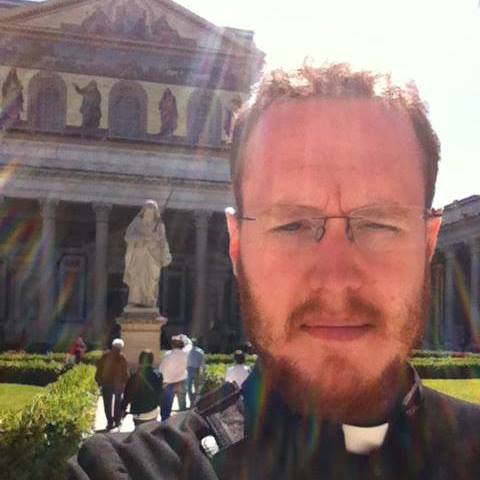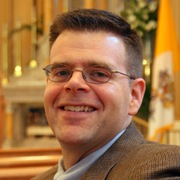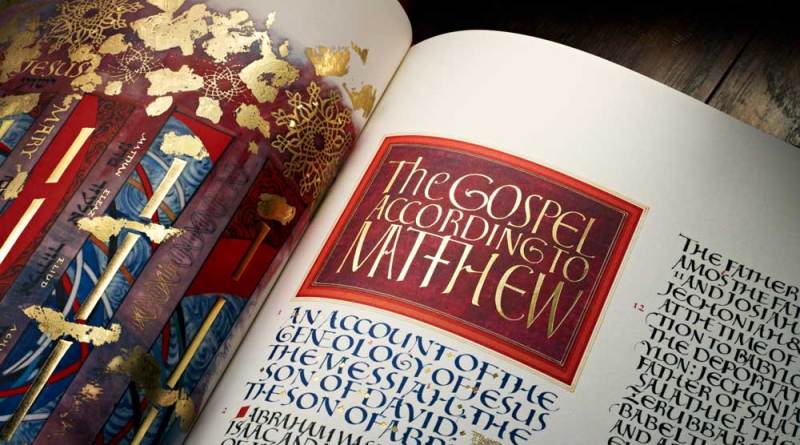-United States Conference of Catholic Bishops
What is conscience?
God creates us with a capacity to know and love him, and we have a natural desire to seek the truth about him. Fortunately, we don’t search for God unaided; indeed, he calls us to himself and writes his law on our hearts to help us draw closer to him.
Conscience helps us hear the voice of God; it helps us recognize the truth about God and the truth about how we ought to live. Conscience is “a judgment of reason”1 by which we determine whether an action is right or wrong.
Jesus told the apostles, “If you love me, you will keep my commandments” (John 14:15). We deepen our relationship with God by following him, and in doing so, we become more fully ourselves.
Importance of a Well-Formed Conscience
Have you ever made a decision that turned out badly, but if you had more information beforehand, you would have made a better decision? Sometimes, we may have the best of intentions to do good, but choose an action that is, in itself, wrong.
For example, think of learning a new language. We can only speak with the language we have, and if we have not received good education in vocabulary and grammar, we will communicate poorly, and others will not understand us. It is similar with conscience.
If our conscience isn’t well-formed, we aren’t well-equipped to determine right from wrong. All of us have the personal responsibility to align our consciences with the truth so that, when we are faced with the challenges of daily life, our consciences can help guide us well.
How to Form Our Consciences
Wherever we are on our journey with Christ, we can grow deeper with him by continuing the work of forming our consciences well, so that we may follow him ever more closely. Although not a complete list, these suggestions can help us as we seek to inform and strengthen our consciences with God’s truth.
Pray
Through prayer and participation in the sacraments, especially Confession and the Eucharist, we encounter the living God. Spending time with the Lord, such as in silent adoration, opens our hearts to him. In drawing closer to the Lord, we allow God’s grace to conform our minds and hearts to Christ, so that we might better discern in every moment how we ought to act.
Learn
Without a foundational, practical formation, it is difficult for our consciences to guide us well in concrete situations. As Catholics, we have the immense gift of the teaching authority of the Catholic Church and can turn to it for help forming our consciences. For example, learning about Christian moral principles, reading the Catechism of the Catholic Church, or researching what the Church says about a challenging teaching will help us grow in knowledge of the truth. In turn, this helps us understand a little more how to live in a way that leads to our true happiness.
Reflect
We are formed by the stories we hear and tell. We may be uncertain how we ought to respond to various challenges as followers of Jesus, but there are many saints who have faced similar questions throughout the ages. Immersing ourselves in the stories of holy women and men can encourage us and help us develop habits of mind that allow us to grow. Stories help us hone our instincts.
Nurture friendships
A life of following Jesus is exceedingly difficult without help from a community. When we devote energy to holy friendships with people who are also trying to know, love, and serve the Lord, we gain partners who can lighten the load. Conversation with other Christians about how to respond to challenges in the life of discipleship are vital.
Two Challenges
A couple challenges we may face in following our consciences are worth noting.
Indifference
When we are bombarded with news, images, stories, and sound bites, it’s easy to become numb to other people and the world around us. Conscience requires us to be attentive. We must listen to God, who speaks to us. Having a well-formed conscience doesn’t mean we have all the answers to the complex problems in the world, but it does mean that we are sensitive to the needs and struggles of other people.
Coercion
Increasingly, we are seeing that certain groups use the power of the media and even of the state to coerce people to violate their consciences. We can see how unjust these types of actions are that insist that popular opinion, rather than conscience, should be our primary guide for action.
Our Response
Inspired by the example of Sister Agnes Walsh and her mother superior, let us devote ourselves anew to following wherever the Lord leads. Let us take courage from their example of faith and, when facing our own trials, remember what Jesus promised his apostles before ascending into heaven: “Behold, I am with you always, until the end of the age” (Matthew 28:20). Be not afraid; God is with us.
[1] Catechism of the Catholic Church, 2nd. ed., 1778.
-Archdiocese of St Paul/Minneapolis
What does it mean to have a well-formed conscience?
The formation of a good conscience is another fundamental element of Christian moral teaching. “Conscience is a judgment of reason by which the human person recognizes the moral quality of a concrete act” (CCC, no. 1796). “Man has in his heart a law inscribed by God. . . . His conscience is man’s most secret core, and his sanctuary” (GS, no. 16).
Conscience represents both the more general ability we have as human beings to know what is good and right and the concrete judgments we make in particular situations concerning what we should do or about what we have already done. Moral choices confront us with the decision to follow or depart from reason and the divine law. A good conscience makes judgments that conform to reason and the good that is willed by the Wisdom of God. A good conscience requires lifelong formation. Each baptized follower of Christ is obliged to form his or her conscience according to objective moral standards. The Word of God is a principal tool in the formation of conscience when it is assimilated by study, prayer, and practice. The prudent advice and good example of others support and enlighten our conscience. The authoritative teaching of the Church is an essential element in our conscience formation. Finally, the gifts of the Holy Spirit, combined with regular examination of our conscience, will help us develop a morally sensitive conscience.
Because our conscience is that inner sanctuary in which we listen to the voice of God, we must remember to distinguish between our subjective self and what is objectively true outside ourselves. We can be subjectively in error about something that is objectively true. On the objective level, if our conscience is “correct,” then there is no error between what is internally perceived to be true and truth itself. If there is an incorrect conscience, that means that the conscience is erroneous in its view of truth.
On the subjective level we can have a “certain” conscience, which means we believe that our conscience is in conformity with what is objectively true. A person can have a “certain” conscience on the subjective level but an “incorrect” one on the objective level. For example, a person thinks that Ash Wednesday is a Holy Day of Obligation and chooses to miss Mass anyway. The person thinks it is a Holy Day (certain subjectively but incorrect objectively) and acts on it. This person has a certain but incorrect conscience. But because the conscience acted against what it perceived to be objectively the good, the conscience chooses to sin.
There are some rules to follow in obeying one’s conscience. First, always follow a certain conscience. Second, an incorrect conscience must be changed if possible. Third, do not act with a doubtful conscience. We must always obey the certain judgments of our conscience, realizing that our conscience can be incorrect, that it can make a mistake about what is truly the good or the right thing to do. This can be due to ignorance in which, through no fault of our own, we did not have all we needed to make a correct judgment.
However, we must also recognize that ignorance and errors are not always free from guilt, for example, when we did not earnestly seek what we needed in order to form our conscience correctly. Since we have the obligation to obey our conscience, we also have the great responsibility to see that it is formed in a way that reflects the true moral good.
Through loyalty to conscience Christians are joined to other men in the search for truth and the right solution to many moral problems which arise both in the life of individuals and from social relationships. Hence, the more a correct conscience prevails, the more do persons and groups turn aside from blind choice and try to be guided by the objective standards of moral conduct. (GS, no. 16)”

-by Fr. Christopher Pietraszko, Ignitum, Fr. Christopher serves in the Diocese of London, Ontario.
“The Church is not called to micromanage consciences – because a conscience is a throne for Christ living in a unique way in the individual, whereby their own subjective experience of objective reality is called to become docile to God’s will in freedom (aligned). Micromanaging the conscience is ultimately dehumanizing, trivializing the the sacredness of the individual will in relationship with God’s particular call in that person’s life.
Egalitarianist tendencies can govern the mind of any form of leadership, whereby seeking “sameness” in all things is perceived to be equalizing, fair, and simple. This however is contrary to the gospel which expounds on the unity manifest in diversity. These two dimensions of unity and diversity are sometimes exaggerated or not integrated and in such a case one has not reached what we might call an intellectual or affective maturity in discernment.
Sacred Scripture indicates that the ‘body of Christ’ is made up of members who accept diversity for the sake of unity, and unity for the sake of accepting diversity. These two dimensions, when rightly ordered to God’s mission, not man’s vision, embody the Church as the hands and feet of Christ. When diversity is emphasized to the neglect of unity we become individualists or “rogue” or “lone-rangers.” However, every extreme generates the other as a result of tribalism. Thus, those who emphasize unity at the neglect of diversity find themselves promoting an oppressive type of conformity. With this, what we discover is an abuse of power. With the former we discover an excessive acquiescence of power.
A healthy understanding of the moral law helps us understand why the Church needs to butt-out of people’s decisions, while also enforcing others. Both respecting a person’s individual conscience and enforcing certain disciplines are for the sake of the common-good. Typically the enforcement of law is seen as the sole proprietor of working towards the common-good, however to Aquinas this is an incomplete truth. In fact, he would state, that if a law isn’t followed by the masses, it may be the case that the law needs to he changed.
Developing a deeper understanding of the law that gives way to the subjective discernment within the Church that does not require a micromanaging paternalism is discoverable in the distinction between positive precepts versus negative precepts. Negative precepts require solid teaching that is unwavering because they are “negative” statements that involve the rejection of what is always objectively the case. The term we would use here is “intrinsically wrong/evil.” Negative precepts of the law are universal, and as such, teachings on contraception according to the Infallible Document of HV are considered as such. These therefore require enforcement.
Positive precepts however can pertain to what is licit, but not necessarily in every circumstance. For instance, pregnant women cannot receive the vaccine due to health concerns since the vaccines themselves are still in the experimental phase and we do not have enough information pertaining to the effect they may have on both the mother and child. Another example could be in regard to evangelization. It is true that we are all called to evangelize as baptized Christians, but not in every circumstance. For instance, when I sleep, I am not consciously able to dialogue with another using my charisms as such to explicitly generate faith in the lives of others. What of vocations?
To some degree, it is both the discernment of the Church and the discernment of the individual. Thus involving both in this discernment process, like a marriage involves listening to the voice of Christ who speaks through the conscience/discernment of what Christ is saying. Therefore one does not force a person against their will to enter into a vocation (arranged marriage/enslaved-priesthood). What of the number of children a couple have? Although there are given principles that are universal, the application of those principles to their concrete circumstances are not always clear: health conditions, mental health, and as such: grave-impediments. The priest does not dictate to the family that no matter what they must have 8 children. In an egalitarian manner, the priest does not say: all couples must have 8 children.
Being formed in our family or origin, our relationships, or even our monastery/convent/seminary, in the way these principles are set forward will have an impact on how we live out our vocation. If in one environment conscience is not respected or the law is not enforced when it ought to be, then this disordered approach to unity (egalitarianism) or diversity (individualism) will be copied, reacted to (thus opposed in its opposite extreme).
The Church, government, in respect to human wisdom is never perfect. Thus it must ongoingly examine the complexities of the day, and do its best to first ask the question: “What do you will God?” How we listen to that voice, while in humility and mortification suspending our own natural vision, and preferences, will give us the interior freedom to be led by Christ and navigate a healthy integration of these two principles. We must be patient in the discernment process, accepting that some mistakes will be made, because it can be challenging to know how to integrate two principles that exist in a perpetual state of changing tension (cf. Cardinal St John Henry Newman)”
Love & Peace,
Matthew






















